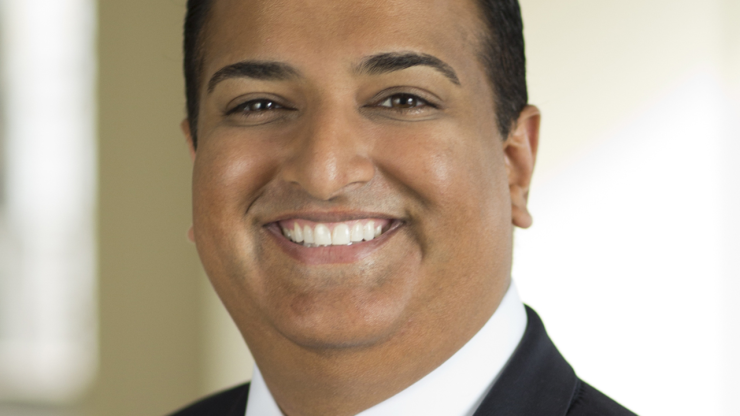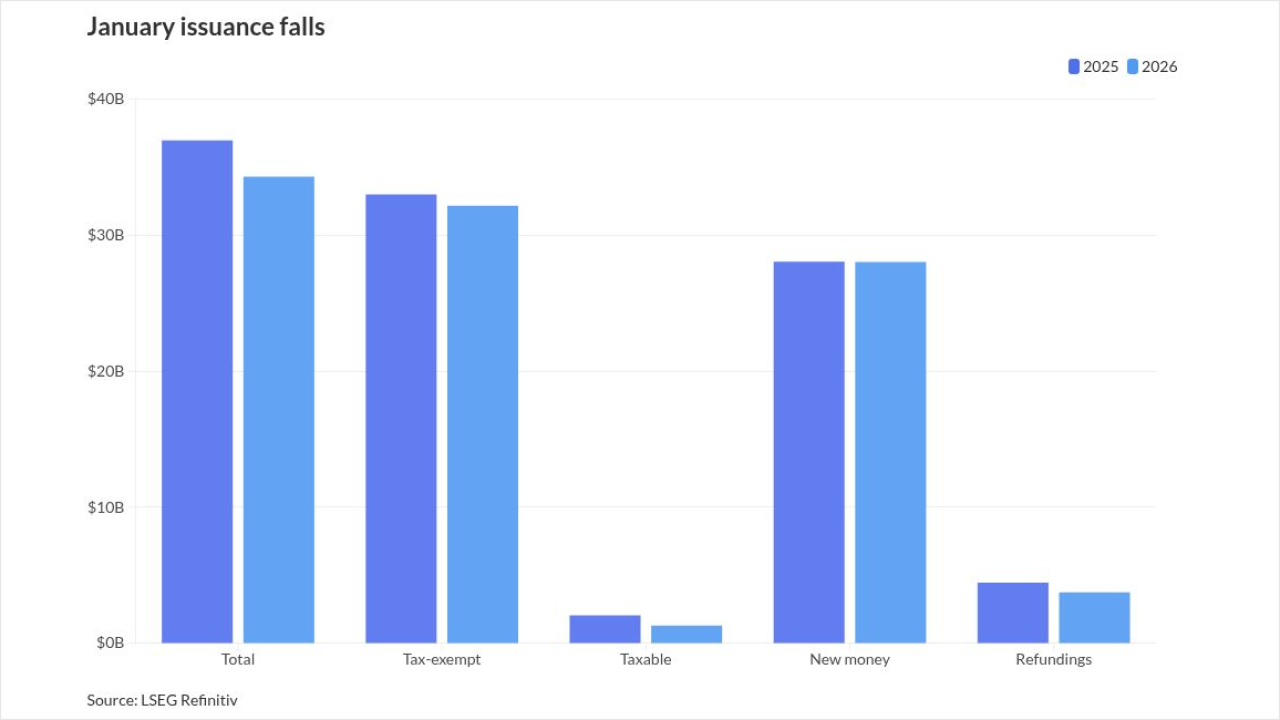A top-rated Texas program that guarantees public school bonds is close to capacity amid a big wave of voter-approved debt to repair aging facilities and accommodate a growing student population.
The Texas Permanent School Fund (PSF) program, which is capped at $117.32 billion under federal law and which bestows triple-A ratings on school bonds, lowering their interest costs, had $100.15 billion of bonds outstanding as of June 30.
"Due to various factors including record school bond issuance this year and higher current and expected funding costs, the Texas Permanent School Fund Bond Guarantee Program (BGP) is rapidly reaching the capacity limited by (Internal Revenue Service) rule," the PSF said in a statement.

It added that the U.S. Treasury and IRS have been alerted about the problem and the hope is they "act as soon as possible so that the program is not closed."
The bond guarantee program's projected available capacity was just $3.9 billion as of the end of June, while the PSF said potential demand was currently $20.5 billion, which is the amount of voter-approved, but unissued bonds in 140 school districts.
A shutdown could be costly for school bond issuers.
"The Texas PSF Guarantee is coveted by investors and Texas school districts have saved a considerable amount in interest costs over time by having access to the triple-A rated PSF guarantee," said Ajay Thomas, head of public finance at FHN Financial Capital Markets in Austin. "For a large number of school districts that fall below the AA-rated category in terms of (their) own underlying credit rating, interest expense will be noticeably higher, ultimately impacting taxpayers."
He added the last time the program was forced to temporarily close, districts continued to have market access, but faced "significantly" higher costs.
The fund reached capacity in early 2009, forcing the Texas Education Agency to stop accepting applications. The guarantee program reopened in early 2010
For investors, the program provides liquidity, making it easier to sell the debt, according to Howard Cure, municipal bond research director at Evercore Wealth Management.
In the event of a default, which has not yet happened in the history of the program,
S&P Global Ratings analysts said most of the Texas school debt they rate is guaranteed by the fund.
"We don't expect the pace of issuance to slow because there are the needs to support the growing population," said Joshua Travis, a S&P analyst. "But if the capacity is reached obviously that will likely lead to higher interest costs and we'll be evaluating what that impact is on the operating budgets for these school districts going forward."
In a recent report, the rating agency said the state's record-breaking
In many cases, districts are preparing for a projected surge in students as the state continues to attract new residents. The U.S. Census Bureau reported in December that Texas, with an estimated population of 29.5 million in July 2021, ranked second among states for the largest net domestic migration gains.
Forney Independent School District in Kaufman County in northeastern Texas won voter approval in May for nearly $1.3 billion of bonds to build new schools and expand existing ones as its student population is forecast to climb from fall 2021's 14,351 to 25,000 in five years and 35,000 by 2031.
The district, which has an underlying rating of A-plus from S&P, used the guarantee for $290.9 million of bonds it sold this summer in a new money series consisting of $191.3 million of bonds voters passed in November 2019 and $97.6 million of the bonds from May's election.
Meanwhile, districts are putting bonds on Nov. 8 general election ballots as they try to finance capital needs amid escalating costs due to high inflation.
Austin Independent School District approved its largest-ever package of proposed bond issues at $2.44 billion to fund a variety of projects, including security upgrades, expansions, and modernizations.
The district, with underlying ratings of Aaa from Moody's Investors Service and AA-plus from Fitch Ratings, would sell voter-approved bonds over six years and use the guarantee fund to minimize interest rate costs, according to Ed Ramos, its chief financial officer.
Spring Independent School District north of Houston is asking voters to approve $850 million of bonds to rebuild a high school, construct a facility for district-wide use, and make safety improvements. The district, which has an underlying AA-minus S&P rating, has used the guarantee program in the past.
Bond elections in Texas are limited to two dates per year, in May and November.
Thomas said some districts may decide to avoid the midterm election ballot and opt for May 2023 instead, despite pressing financing needs.
"Suburban schools and what was once described as rural school districts are seeing consistent enrollment growth, in some cases explosive enrollment growth per year, and that is contributing to the need for more facilities," he said. "Additionally, the continued high cost of construction and elevated pricing levels for labor and materials is placing a sizable burden on school districts to meet their residents' needs."
Since 1985, $231.3 billion of bonds have been guaranteed. Charter schools, which were
Cure said while Texas school districts should have high enough underlying credit ratings to allow them to sell bonds on a standalone basis without too much pain, that might not be the case for charter schools
"As a charter school you run the risk of not having your charter renewed," he said, adding that risk usually translates into lower underlying ratings.
Those schools must have an investment grade rating to be considered for the guarantee program. The state has 896 charter schools that serve 7% of public school students, according to the Texas Public Charter Schools Association.





